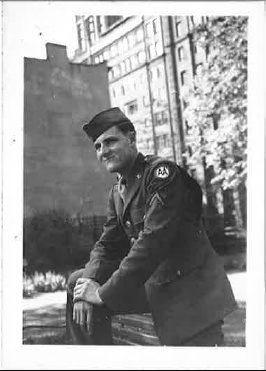 |
| Link to Other Photos |
July 11, 2012
(Surrogate’s Court, New York County, August 12, 2011)
Law school text books define a “laughing heir” as one who is legally entitled to inherit the property of a person who has died, even though he or she is only distantly related to the deceased, and therefore has no personal connection or reason to feel bereaved over the death. Until recently, most of us at Itkowitz thought laughing heirs existed only in the world of law school hypothetical questions. That is, until Mr. Ferris passed away.
During his lifetime, Itkowitz helped Mr. Arthur Ferris avoid eviction from his rent controlled apartment. Through our work with non-profit
Lighthouse International, which provides services to the blind, we were referred to Mr. Ferris after his landlord attempted to evict him. We were able to save Mr. Ferris from eviction, cured the issue with Mr. Ferris’ apartment, and periodically sent firm employees to check on him to make sure the apartment remained in good shape. Unfortunately, in December of 2009, an Itkowitz employee who went to check up on him found that he had passed away.
After a genealogical search, we found that the closest living relative of Mr. Ferris was a cousin. Surprisingly, we also found that Arthur Ferris had left no will and an estate valued at approximately 2 million dollars. After Mr. Ferris’ cousin, received a pleasant call from us explaining to her that she may be entitled to 2 million dollars, she agreed to retain us to represent her with respect to the estate. Because Mr. Ferris had no children, spouse, or siblings and his parents were deceased, only the New York City Public Administrator could administer the estate.
 |
| Link to Other Photos |
We worked closely with the public administrator to get the cousin named as the only potential heir on the accounting. We then objected to the accounting on the grounds that the cousin was not the alleged heir, but the actual heir. The court scheduled a kinship hearing where we were required to prove our case. Proof of kinship must extend to the nearest common ancestor between decedent and distributee, and must demonstrate not only that there are no closer distributees who would cut off her right, but also that she is the only one in her generation, or “class” of equals in the degree of closeness to the decedent. Where the decedent leaves only a first cousin, the distributee must prove not only the entire family tree up to and including grandparents on both the maternal and paternal sides, but also that no other closer relative were ever born. This is not an easy undertaking, and if a distributee fails to meet this standard of proof, she must wait for three years after the death of the decedent, at which point she can proceed with a kinship hearing in which a lesser standard of proof (due diligence) needs to be shown. Of course, no one wants to wait for three years to receive an inheritance of that size, so we had to conclusively show that any person who had a better claim than Jane had passed away and that no other person with a better claim was ever born.
In order to meet the court’s high evidentiary standards, we enlisted the help of well-known genealogist, Leslie Corn. In addition to serving as a genealogist for both seasons of the NBC genealogical documentary series, “Who Do You Think You Are?”, she has worked with attorneys, realtors, banks, investigators, heir searchers, and private clients as a genealogist for the past 16 years. Through exhaustive research, Leslie procured extensive documentary evidence that showed that Jane was Mr. Ferris’ only living heir. We were able to track down several witnesses who knew Mr. Ferris, including many who knew him through Lighthouse International’s program by which volunteers read to the blind.
At the kinship hearing, the genealogist spoke about her research at length and each witness testified that Mr. Ferris had no children and no siblings while the public administrator and guardian ad litem asked questions. Following the hearing, by an order of Surrogate Anderson dated August 12, 2011, the Court ordered that “the Public Administrator is directed to distribute the net estate to [the cousin].” At that moment, the cousin, who had only met Arthur two times during her life, became a true laughing heir.
Link to Historical Photos of Interest
itkowitz.com








